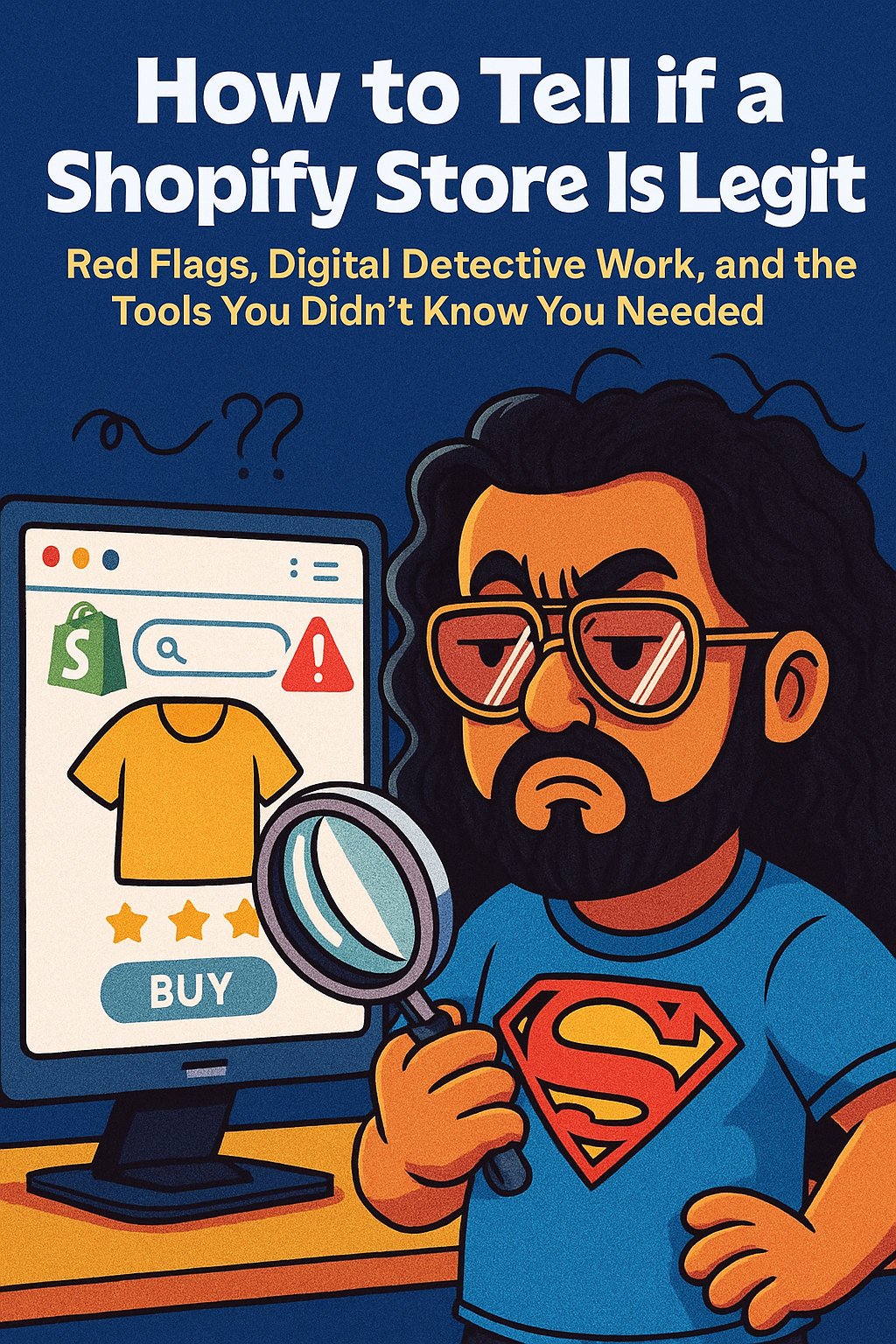How to Tell if a Shopify Store Is Legit
E-commerce Tools
July 04, 2025
Digital Detective Work, Red Flags, and the Tools You Didn't Know You Needed
Hosting Life
Friday, 18th July 2025 | ✍️ Written by: T.S.
So, you’ve just found the perfect online store selling gold-plated fidget spinners, motivational mugs, or yet another ‘must-have’ tech gadget. It looks sleek, modern, and trustable. But then your inner cynic whispers, “Is this legit, or am I about to donate £29.99 to a bloke in a shed with a dropshipping habit?”
Welcome to the post-AI retail jungle, where spotting a fake is a life skill and dodgy stores are more common than honesty in politics.
🛍️ Shopify: The Engine Behind the Curtain
Before we start pointing fingers, let’s understand the stage.
Shopify is one of the biggest eCommerce platforms on the planet. Think of it as the WordPress of online stores. Easy to use, endlessly customisable, and, unfortunately, very attractive to both ambitious entrepreneurs and digital charlatans.
With millions of stores built using Shopify, it's no surprise you’ve stumbled upon more than a few during your late-night scrolling sprees. But how do you separate the genuine stores from the scammy clones?
🔍 Enter the Theme Detector (Yes, Ours)
Our Shopify Theme Detector tool is your first line of defence. Paste in a store’s URL, and boom you’ll know what theme it’s running, whether it’s a stock template or something custom. Why does this matter? Because real brands often invest in bespoke design or advanced Shopify themes. Scam shops, on the other hand, tend to slap on free themes and call it a day.
If a “high-end luxury” site is running Debut, Dawn, or something free and untouched, your spidey senses should start tingling.
🚨 Red Flags: The Unofficial Scam Store Checklist
Here’s a quick gut-check before you part with your hard-earned cash:
1. No Contact Page, No Address, No Nothing
If the only way to contact them is through a form that looks like it was coded in 2003, walk away. Real businesses are proud of their details.
2. Too Good to Be True?
It probably is. £9 for designer headphones? Unless they’re made of cardboard and broken dreams, it’s a trap.
3. Stock Photos and Bad Grammar
If the product photos scream Shutterstock and the spelling reads like a late-night pub rant, trust your instincts.
4. Trustpilot... or Trust Your Gut
Fake reviews are everywhere. Look beyond the five-star fluff and check dates, language, and consistency. Real reviews sound human, not like AI bots on caffeine.
5. The Return Policy is MIA
A legit shop has clear returns info. A scammy one will either bury it in legal jargon or “accidentally” forget it altogether.
🧠 Use Your Brain, But Let the Tools Help Too
Let’s be real: even the smartest shopper can get fooled. That’s why tools like our Shopify Theme Detector are more than a geeky gimmick they’re your digital magnifying glass. Want to know if that “independent” fashion label is actually running 10 identical stores with different logos? Now you can.
Combine our tool with a quick WHOIS lookup, domain age checker, and maybe a sneaky Google image search on those product pics, and you’ve got yourself a solid scam-sniffing setup.
💡 Final Words from Your Favourite Hosting Cynic
The internet is full of wonders, bargains, and unfortunately dodgy shops built in a lunch break. But with a bit of curiosity, common sense, and clever tools like ours, you can stay one step ahead.
Remember:
It’s not about being paranoid. It’s about being prepared.
The Shopify Theme Detector isn’t just for developers or nosey marketers, it’s for you the shopper, the hustler, the curious browser who wants to make sure they’re not funding the next online pyramid scheme.
So the next time you stumble upon an online store promising the world, don’t just click “Add to Cart.”
Click “Inspect the code, check the theme, and follow the digital breadcrumbs.”
You’ve got this.







Detectors
We do not sell your email. We do not spam.

